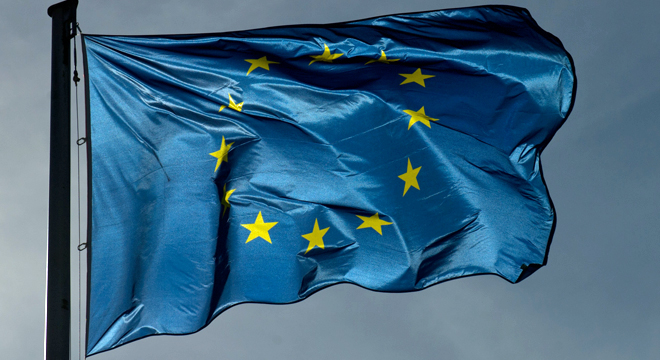The European Parliament on Thursday voted in favor of a strongly-worded resolution that calls upon member states to fight any expansion of United Nations regulations, or international regulations of any sorts, over the Internet.
The resolution, which was introduced by members of the European Parliament representing four parties (including the Pirate Party), was adopted by a “show of hands” vote at Thursday’s session, according to European Parliament press officer Constanze Beckerhoff, in an email to TPM.
“It was adopted by show of hands of the Members of the European Parliament, so there are neither figures nor names available,” of those who voted in favor of the resolution and those who did not, Beckerhoff wrote.
The resolution is a political one, not legal, so there is not any “legal impact for Member States” for failing to uphold it, Beckerhoff pointed out.
Still, the resolution marks an important symbolic stance ahead of an upcoming United Nations conference that’s drawn concerns and criticisms from around the world from the likes of Google, U.S. lawmakers (namely Republicans) and a host of Web freedom and user advocacy groups, who fear that the conference could result in an expansion of regulations, and Google, U.S. lawmakers (namely Republicans) and a host of Web freedom and user advocacy groups, who fear that the conference could result in an expansion of regulations, and potentially censorship and taxes, over the Internet.
The World Conference on International Telecommunications 2012 (WCIT 12) is due to take place in Dubai from Dec. 3-14. The U.N. agency in charge of it, the International Telecommunications Union (ITU), has repeatedly sought to assuage these concerns, pointing out that no new regulations will be enacted unless all 193 participating member states can reach consensus on them.
Still, the European Parliament resolution expressed wariness (.doc) about updating the current regulations — a series of agreements called the International Telecommunications Regulations (ITRs), reached in 1988 — in such a way that the ITU gains additional powers. “[T]he ITU, or any other single, centralised international institution, is not the appropriate body to assert regulatory authority over either internet governance or internet traffic flows.”
Further, the European Parliament “regrets the lack of transparency and inclusiveness surrounding the negotiations,” a common criticism of the conference and the proposed new regulations, selected documents of which the ITU has only recently made public (only paying members and UN representatives previously had access to all the proposals).
The resolution also has the Parliament repeating a refrain that began in earnest over the summer: that the conference could somehow lead to a “takeover” of the Internet by the U.N. or that the conference could be “hijacked” by those nations that proposed more tight state controls and taxes over the Internet, such as Russia, China, Iran, and some Arabic and Eastern European nations. As the resolution spells out:
“As a consequence of some of the proposals presented, the ITU itself could become the ruling power over aspects of the internet, which could end the present bottom-up, multi-stakeholder model; expresses concern that, if adopted, these proposals may seriously affect the development of, and access to, online services for end users, as well as the digital economy as a whole…
…the ITU reform proposals include the establishment of new profit mechanisms that could seriously threaten the open and competitive nature of the internet, driving up prices, hampering innovation and limiting access; recalls that the internet should remain free and open.”
Concerns that the conference could negatively impact the freedom and openness to the Internet are also at the heart of Google’s new online campaign, “#FreeAndOpen,” launched Tuesday, which asks Web users to sign a petition to “join together to keep the Internet free and open. Make your voice heard.”
Correction: Due to a formatting error, this article originally erroneously repeated several paragraphs, beginning with “The World Conference on International Telecommunications…” through to the end. We have since corrected the error and deleted the repeated paragraphs and apologize.






